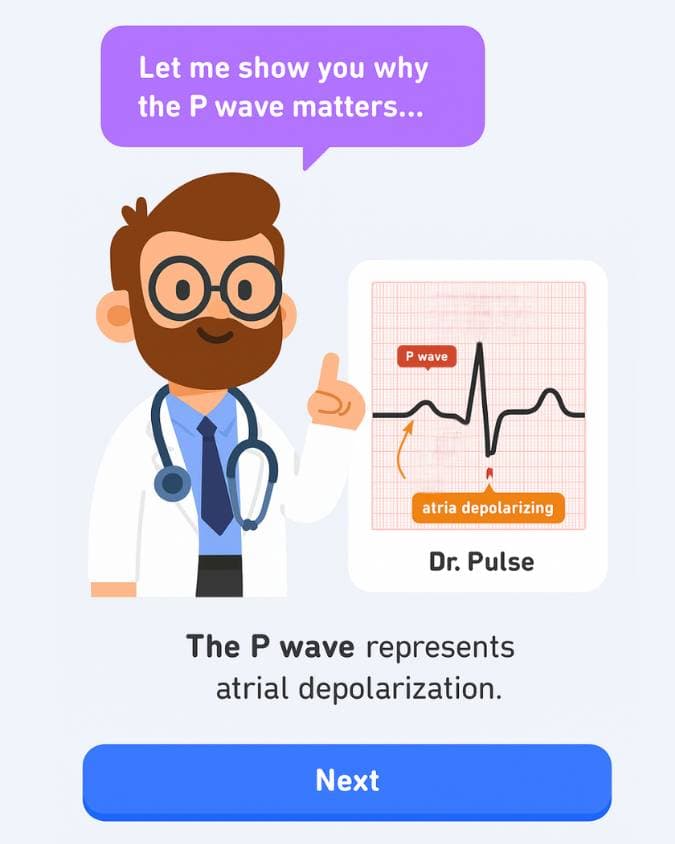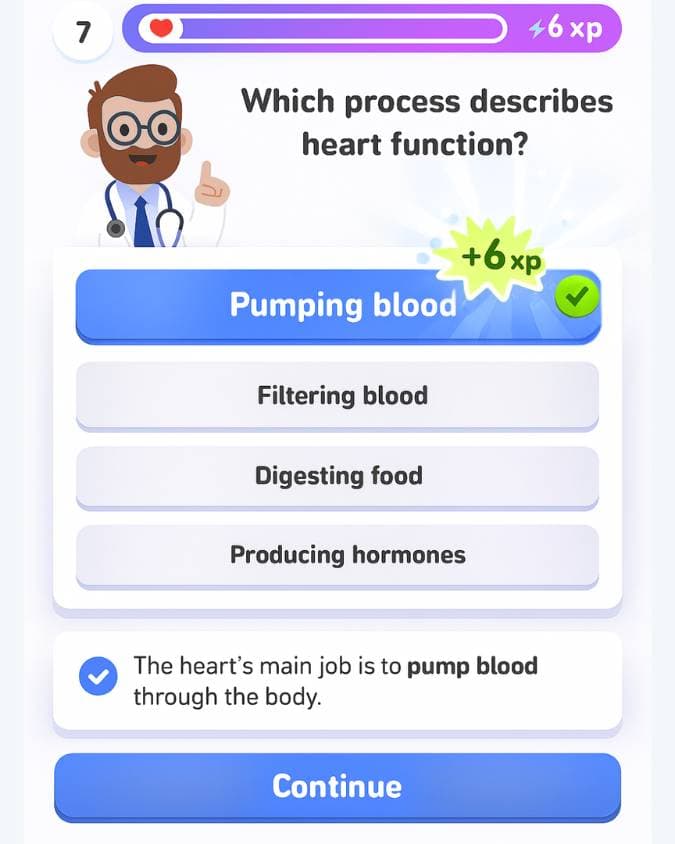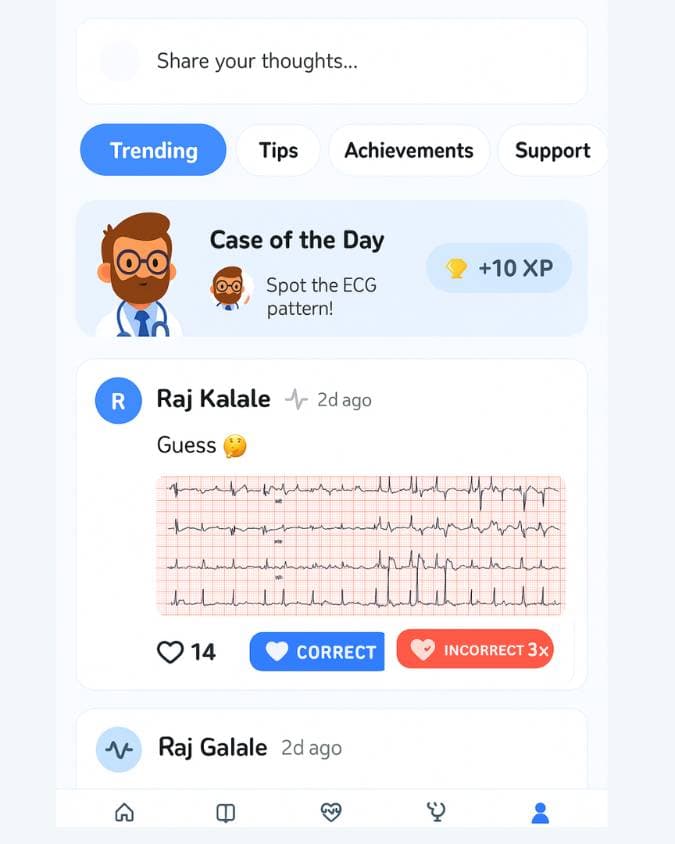🎓 Learn • Practice • Master
Master ECG
Like a Game
Transform heart rhythm learning into an engaging adventure. Practice with real cases, earn rewards, and become an ECG expert through interactive challenges.


Master ECG in Three Steps
From learning fundamentals to practicing with real cases and consulting experts

Learn Fundamentals
Master ECG basics through structured lessons designed by medical experts
Start Learning
Practice with Games
Interactive challenges with real ECG cases and instant feedback

Your Learning Journey
Follow our proven 4-step pathway to ECG mastery
Learn Basics
Master ECG fundamentals
Practice Daily
Interactive simulations
Test Knowledge
Assessment challenges
Expert Review
Professional guidance
Practice withReal ECG Cases
Master ECG interpretation through interactive simulations with real patient cases. Get instant feedback and build confidence in your diagnostic skills.




SmartFlashcards
Master ECG patterns and rhythms with our AI-powered flashcard system. Spaced repetition ensures you remember what you learn.
Trusted by Medical Professionals
Join thousands of medical students and professionals worldwide
Ready to Master ECG?
Join thousands of medical professionals who've transformed their ECG skills with E-PulsePoints